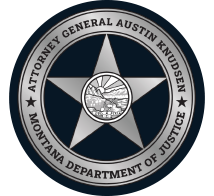Steps You Can Take After Sexual Assault
(Adapted from the Rape, Abuse, & Incest Nation Network (RAINN))
Información para hablantes de español
It’s hard to know what to do, how to feel, or what your options are after a sexual assault. Please know that you’re not alone. Below are some things to keep in mind. If you are in immediate danger or seriously injured, call 911.
- Your safety is important. Are you in a safe place? If you’re not feeling safe, consider reaching out to someone you trust for support or calling 211 to get connected to help near you. You don’t have to go through this alone. If you are in immediate danger or seriously injured, call 911.
- What happened was not your fault. Something happened to you that you didn’t want to happen—and that’s not OK. It does not matter if you know the perpetrator(s) or have had consensual sexual relations with them before.
- Consider seeking medical care. Call 211 (available 24 hours a day/7days a week), visit https://montana211.org, or text “HELLO” to 741741 for help connecting with a sexual assault service provider in your area. They will walk you through the process of getting help at your own pace. Seeking medical attention to identify and treat any injuries is paramount. You may also wish to have a sexual assault forensic exam during which an evidence kit is collected. Evidence may be collected regardless of whether you choose to report your sexual assault to law enforcement. DNA evidence is ideally collected within 5 days of the assault but may still be collected after that timeframe depending on the circumstances.
- Under Montana law, you cannot be billed for the cost of the forensic exam and evidence collection but may be charged for treatment of any injuries. The Crime Victim Compensation Program can help cover medical and counseling expenses if you decide to report your assault to law enforcement.
- Drugs leave the body very quickly, often within the first few urine samples. If you think you have experienced a drug or alcohol-facilitated sexual assault, or are not sure what may have happened, consider going to a hospital immediately. Consider saving any other materials that may contain evidence of any drugs such as the glass that held your drink.
- There is value in having a sexual assault forensic exam regardless of whether you know the identity of the perpetrator(s).
- Consider connecting with a victim advocate. Community-based advocates and systems-based advocates both provide specialized, valuable support to crime victims.
- Community-based advocates are employed by nongovernmental entities that typically offer several services, which may include counseling, emergency shelter, guidance, etc., depending on the organization. Some may be able to send a trained advocate to accompany you to a healthcare facility or while you speak with law enforcement.
- Systems-based advocates are employed by governmental entities and typically interact with victims who report a crime to law enforcement. These advocates help guide victims through the criminal justice system and ensure they are aware of their rights. They can also connect you with community-based services and resources.
- To connect with an advocate, call 211 (available 24 hours a day/7days a week) or search our list of crime victim advocates and other resources in or near your community. Each listing notes if it is a community- or systems-based advocacy organization. You can also text “HELLO” to 741741 to receive confidential help.
- Consider reporting to law enforcement. Justice can mean different things to different people, and reporting a crime to law enforcement is an individual decision. There are multiple ways to report sexual assault:
- Call 911, especially if you are in immediate danger.
- Call the direct line of your local law enforcement agency or visit the office in person.
- If you seek medical care, tell a medical professional you wish to report the assault.
- If you don’t want to report the assault immediately, you can still seek a sexual assault forensic exam and have evidence collected. The healthcare facility will forward the evidence to the Forensic Rape Examination Payment Program (FREPP); under Montana law, FREPP holds your evidence for 75 years or until you decide you are ready to report to law enforcement.
- When you’re able, record any details you can recall about the assault and perpetrator. It’s okay if you don’t recall everything that happened.
- “Fight”, “flight”, “freeze”, and “fawn” (trying to appease a threat to cope with danger) are all common brain responses to life-threatening, fearful situations, not just sexual assault. They are not a matter of choice for the person experiencing them. “Fawning” and “freezing” (or an inability to move during an assault) are NOT signs of consent. They are defense mechanisms the brain uses to keep a person alive during a life-threatening or terrifying situation.
- The brain’s fear responses cause memories to be encoded differently; memories may not be stored in chronological order and there may be gaps. This may cause confusion and make it difficult to share your experience in ways that “make sense” to others. This is NORMAL. It is NOT a sign that the assault did not occur.
- It’s never too late to receive support. Please call 211 (available 24 hours a day/7days a week), visit https://montana211.org, or text “HELLO” to 741741 for assistance.
OVS
Educational Video Resources
For more information, contact:
Hope Stockwell, SARN Coordinator
E-Mail: [email protected]
Phone: 406-444-9869
